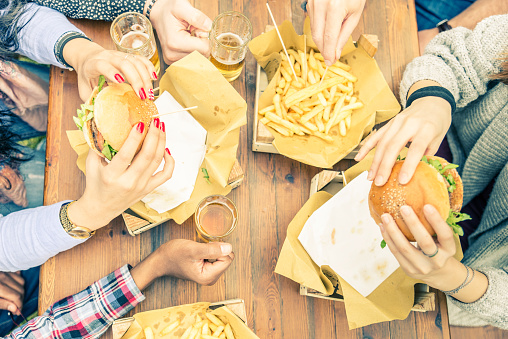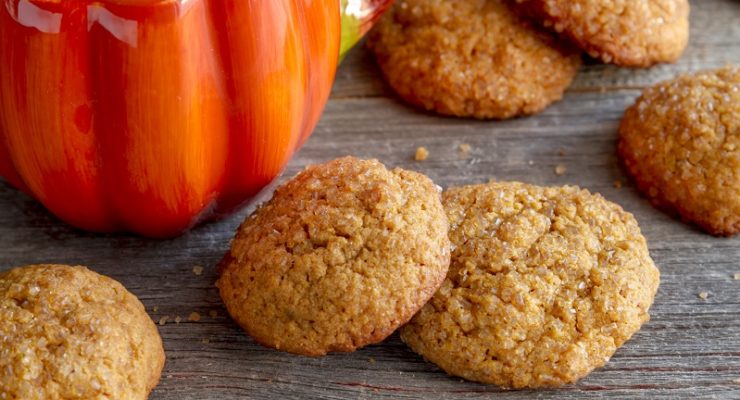September is all about new beginnings. It’s a new season and many people begin new routines that will carry them through the rest of the year. Plus, September has been officially designated as Self-Improvement Month. We can’t think of a better time to start anew and better yourself! It’s time to think of every day as an opportunity to take simple steps that will help you look, feel and live better. To get you started, we’ve gathered this list of hints that you can use to build a happier and healthier you this September.
6 Reasons Fall is the Best Time for Weight Loss
Read More 
Here are 15 self-improvement tips for a successful September:
1. Reset your habits.

We make lots of choices every day. However, we also do many things without thinking, simply because they’ve become habits. The good news is that not all habits are harmful. There are many healthy habits that can turn your September into a successful start to a new season. Even better, research shows that it can take as little as 66 days to build a new habit that’s good for you, says University College London. This can include drinking more water, starting a new exercise routine, getting more sleep or even cutting down on screen time.
Not sure where to start? Check out these 10 workday habits of healthy people! >
2. Practice positivity.

You have more control of your inner dialogue than you realize. By making a concentrated effort to think positive thoughts, you can improve your mood and your health. “People with a family history of heart disease who also had a positive outlook were one-third less likely to have a heart attack or other cardiovascular event within five to 25 years than those with a more negative outlook,” says Johns Hopkins Medicine. They also explain that smiling reduces heart rate and blood pressure during stressful situations, even if it’s a fake smile. You really can fake it until you make it!
3. Give yourself goals.

Every achievement, big or small, starts with a goal. The goals you are most likely to reach are specific and attainable. Simply saying you want to lose weight or stay in touch with old friends, for example, makes it easy to keep putting those things off. Instead, define your goals as “fitting into my favorite dress for a wedding” or “calling one friend every week.” Click the link below for tips on writing your own goals!
Reach All Your Goals—Every Time!
Read More 
4. Accept setbacks.

No matter how motivated and focused we are, sometimes forces beyond our control prevent us from reaching our goals. Too often, that makes us feel like giving up, as if we’ll never succeed. However, progress rarely goes in a straight line. Sometimes we need to remind ourselves that even when we go two steps forward and one step back, we have moved closer to our goal.
5. Try mentoring.

People with experience in careers, parenting and life skills have invaluable knowledge to share with those just starting out. Mentoring can be rewarding for both sides—mature people get to pass along their well-earned wisdom and younger folks get help in overcoming obstacles. Plus, when one teaches, two learn! Check out The National Mentoring Partnership: They have a “connector” database that matches mentors with people who want to be mentored.
6. Widen your circle.

If you have a few close friends, you are fortunate. However, regular contact with a broader range of people is also good for your mental health as you get older. According to research, published in the Journal of Epidemiology and Community Health, “The midlife wellbeing of both men and women seems to depend on having a wide circle of friends whom they see regularly,” says ScienceDaily.
Are Your Friends Dooming Your Diet?
Read More 
7. Make time to read.

We all spend more time than ever looking at the screens of electronics. It’s time to put down your smart phone and pick up a good old book! Taking time to read books helps both our bodies and our minds: Research shows that reading can reduce stress levels by up to 68 percent, says the University of Minnesota. Whether you enjoy inspirational self-help, biographies or fantasy fiction, there’s a book out there for everyone. Audio books are also a great option when you’re on the go! Listen to them on your commute, your daily jog or while you’re cooking up a healthy meal.
8. Try new apps.

Our phones and tablets bring the world to our fingertips and can make our lives easier. You can try apps that help you work on your memory skills, learn new vocabulary, pursue creative ideas, manage your finances, try new workouts and so much more. Want to lose weight this September? Check out the FREE NuMi app from Nutrisystem, available for both Apple and Android devices! It’s the ultimate app for weight loss because it makes it easy for you to track your progress and provides daily information and inspiration. Learn more here! >
9. Learn a second language.

Being able to speak two languages not only allows us to communicate with a wider variety of people but it’s also good for our brains. According to Annual Review of Linguistics, “research in recent decades has demonstrated that experience with two (or more) languages confers a bilingual advantage in executive functions and may delay the incidence of Alzheimer’s disease.” You can learn a new language using one of the many online courses or apps. Solidify your skills by practicing with native speakers whenever possible.
7 Simple Ways to Practice Self Care at Home
Read More 
10. Fix your posture.

Sitting all day and staring at a screen can cause poor posture. This can damage your spine, cause neck and back pain, decrease flexibility and impact breathing, says MedlinePlus. You can avoid these problems by bearing in mind the basics of good posture throughout the day: Harvard Health Publishing recommends keeping your chin parallel to the floor and your shoulders even. You should have a “neutral spine” with your arms at your sides. Be sure to keep your hips level, knees and feet pointing forward and your body weight distributed evenly. Run down that list when you’re sitting and standing to re-balance yourself and prevent the slumping that pushes us out of alignment.
11. Meditate daily.

Taking a little time each day to clear your mind of your daily cares and concerns can help you enjoy a stress-free September. According to Mayo Clinic, meditation has been shown to decrease the symptoms of high-blood pressure, chronic pain, anxiety, headaches, sleep problems and more. You can find many apps and online videos to help you get started. However, the basics are simple: sit in a comfortable position in a location that’s free from distractions. Focus on the rhythm of your breathing and let any thoughts or worries that enter your mind drift away. All you need is 10 minutes to get the benefits of this little break from the rush of daily life.
12. Cook often.

When you prepare your own food, you pay attention to the ingredients and can avoid unhealthy additives like salt and sweeteners. If you don’t have much experience cooking, start off simple and practice your skills before you take on more elaborate dishes. Don’t know where to begin? Check out The Leaf Weight Loss Blog for thousands of easy and delicious recipes that fit into your healthy diet! You can also pick up a copy of the book How to Cook Everything by Mark Bittman. It covers all the basics and shares the little tips and secrets that great home cooks learn after years in the kitchen.
12 Fall Snack Recipes Under 200 Calories
Read More 
13. Sleep more.

You might not think of sleeping as a way to improve your life. However, so many of us are chronically tired that it actually harms our mental and physical health. Lack of sleep even increases our chances of overeating and makes it harder for us to lose excess weight, says Current Opinion in Clinical Nutrition and Metabolic Care. Try your best to stick to a regular bedtime and wake-up schedule. If you find yourself tired in the middle of the day, taking a 20-minute nap can refresh you without disrupting your night-time sleep.
Learn more about the importance of getting good sleep! >
14. Lose weight.

According to the National Institute of Diabetes and Digestive and Kidney Diseases, being overweight or obese can lead to a wide range of health concerns, such as diabetes and heart disease. Losing the excess weight can reduce your risk of these problems, as well as promote positive feelings, a sense of accomplishment and better self-image. To help you reach a healthy weight, consider trying a convenient meal delivery service that fits into your new September schedule. Nutrisystem provides you with a simple meal plan, food delivery and an amazing support system. Click here to learn more! >
15. Be grateful, be happy.

Simply being thankful for the most basic things that we have in our lives—food and shelter, health and safety, family and friends—improves our sense of well-being. Practicing gratitude is associated with “greater life satisfaction,” according to research, published in the medical journal Psychiatry. What better way to improve ourselves this September than to be happier about all the good things we have? Try starting a gratitude journal and reflect on what you’re thankful for throughout the month. It’s a great way to start your day with a positive mind.
7 Reasons Nutrisystem Is the Perfect Fall Weight Loss Plan
Read More 
The post 15 Self-Improvement Tips for a Successful September appeared first on The Leaf.
from The Leaf https://ift.tt/34nIjDB





















